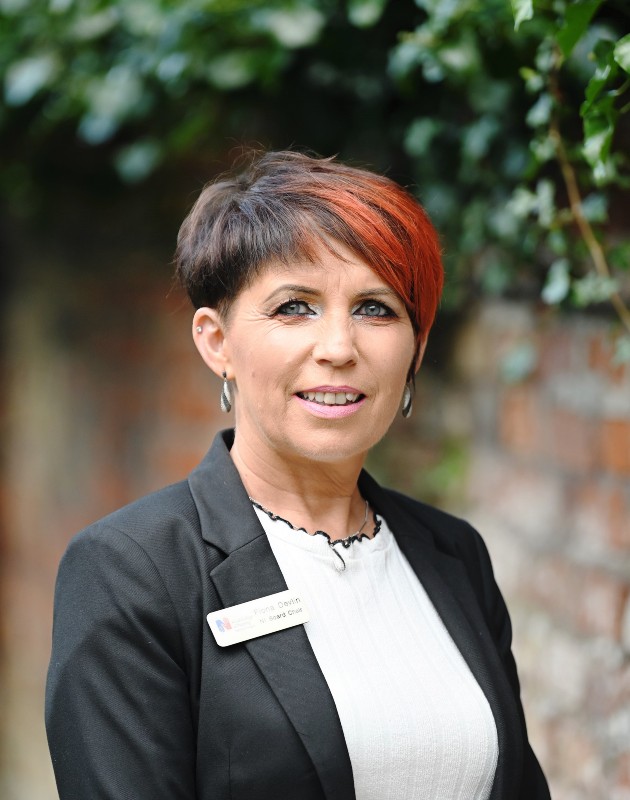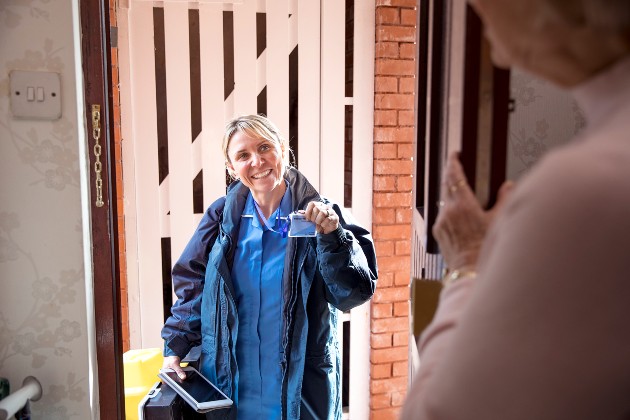RCN Council member Fiona Devlin is passionate about the safety of nursing staff. She’s heard countless stories from colleagues about unsafe work settings – for some, that includes patients’ homes.
When nurses do home visits, that home becomes their work environment – and it must be assessed and treated like any clinic, ward or surgery.
Now, Fiona has helped create specific guidance for lone workers. “This guidance clearly sets out the responsibilities of the employee, but equally of the employer,” Fiona says.
Duty of care
All nursing staff have a duty of care to their patients, but they also have a duty of care to themselves, which often gets overlooked.
“Staff are entitled to a safe working environment. They’re entitled to work without being subjected to verbal or physical abuse. They have the right to air their feelings, state their vulnerabilities and fears, and know that the support mechanisms will be there,” says Fiona. “The duty of care to patients is equal to the duty of care to staff.”
No nurse wants to refuse treatment or withdraw care, but they must know when a work environment becomes unsafe and how they can raise concerns effectively.
Unless you work in the community, you don’t fully understand what nurses are exposed to
Recognising risks
The guidance doesn’t just cover safety in dangerous and abusive scenarios, but also in infection prevention and control. Homes filled with clutter or that have pest problems could both pose risks.
“Unless you work in the community, you don’t fully appreciate or understand what nurses are exposed to,” says Fiona.
“From the moment district nurses step into their car, they’re risk assessing. Even if they’ve been there before, the risk assessment changes each time they go.“

Obviously COVID-19 has had an impact on infection prevention and control, and every patient-facing nurse has been vulnerable to catching the virus.
The guidance includes a COVID-19 specific section on how to respond to unsafe working conditions, such as family members ignoring requests to socially distance, and providing care in poorly ventilated homes.
Knowing your rights
Nurses should not have to tolerate any form of aggression or abuse, no matter what sector they work in.
Fiona says: “In the community, for a long time, staff didn’t have phones or lone worker devices, and the onus was on the individual to report serious incidences to the police.”
The guide lists several measures, known as controls, that an employer should put in place to reduce the risk.
These can include:
- staff training
- ways to raise the alarm
- procedures for supervision
- policies on what constitutes unacceptable situations
- withdrawing care from patients who are violent and abusive.
Fiona adds that, now more than ever, nurses do not need more stress added to their jobs.
“In Northern Ireland, where I live, we’re finding staff retention very poor in our district nursing teams,” says Fiona. “They have higher caseloads, especially with COVID-19, and the added pressure of other services closing.
“At the end of the day, if we don’t have the structures in place to protect and support our staff, they’ll leave community nursing and patient care will suffer."
'We were very afraid' – Edna’s story
A colleague and I had a referral put through for a daily dressing for a male patient. We were given very limited information other than there had been some issues previously – but we weren’t told what the issues were.
We turned up at the address, which was very remote, and there was no phone signal. We were tasked with an assessment for a wound, which we carried out, but the patient made it very clear that he was in control – of us and of the situation – and that we would be working under a threat.
Without additional information on who we were dealing with, we couldn’t carry out an adequate risk assessment. We were very afraid.
When we next went to the property, we parked so the car was facing outwards to give us an easier escape route if we needed it. We removed all the sharp objects from our uniforms. We knew we had to keep him in front of us at all times and not to let him get between us and the door, because he used to come around behind us to frighten us.
We raised our concerns, but they were not dealt with appropriately, so we cared for this patient over a number of weeks. I think the general belief was that the district nurses were dealing with it, and that nobody else had to deal with it so long as he was getting the care he needed within the trust. It was seen as acceptable for us to be afraid and threatened; we were considered collateral.
Edna Grant is a district nursing sister in Northern Ireland.
'He locked the door, trapping me' – Marysia's story
I was out on a home visit to a patient who was an older woman, but her husband also lived at the property with her. After I treated her, I went to go out the back door, but the husband closed it and wouldn’t let me out. I had to think on my feet and figure out how to handle this situation safely.
His whole demeanour was very authoritative. He said things like, “You’ll do as I tell you to,” and made me wait inside. Then he actually locked the door, trapping me. I had to distract the man so I could try to get out. I tried to talk to him and explain why I was there, to care for his wife. I managed to distract him and get a key, and I opened the door and ran. It was quite a frightening experience.
This incident happened around seven years ago, but in those days we didn’t have phones. Now we do, and they are a good safety net. I always remind nurses to keep them charged overnight and make sure they keep them on during their working hours. This way, if there are any issues at all, they can ring for help.
Before, district nurses had very few resources, but now with this guidance we have something. We want everybody to read it and be aware that it is out there, so nursing staff can use it to back up their decision-making if they ever feel unsafe.
Marysia Graffin is also a district nursing sister in Northern Ireland.








